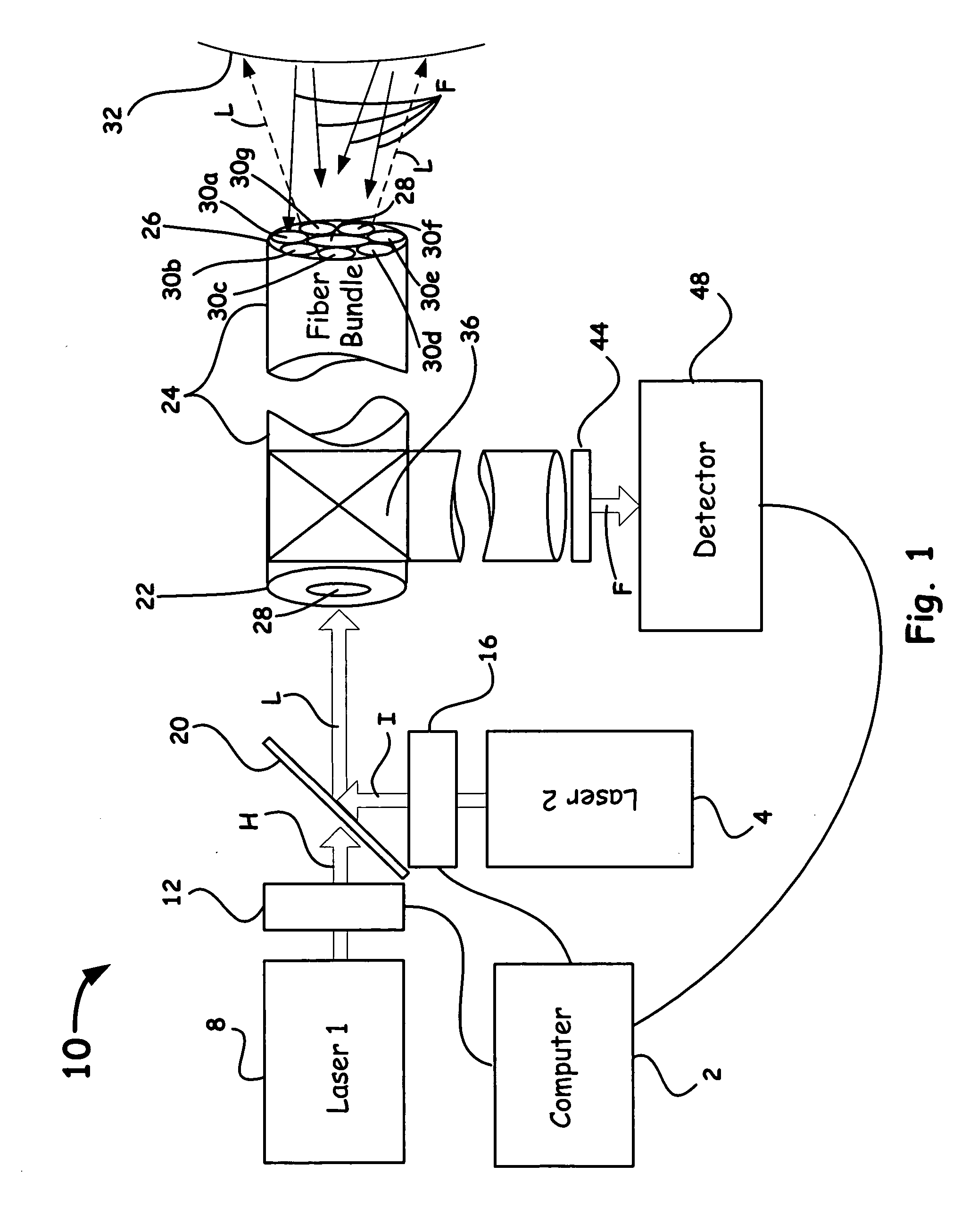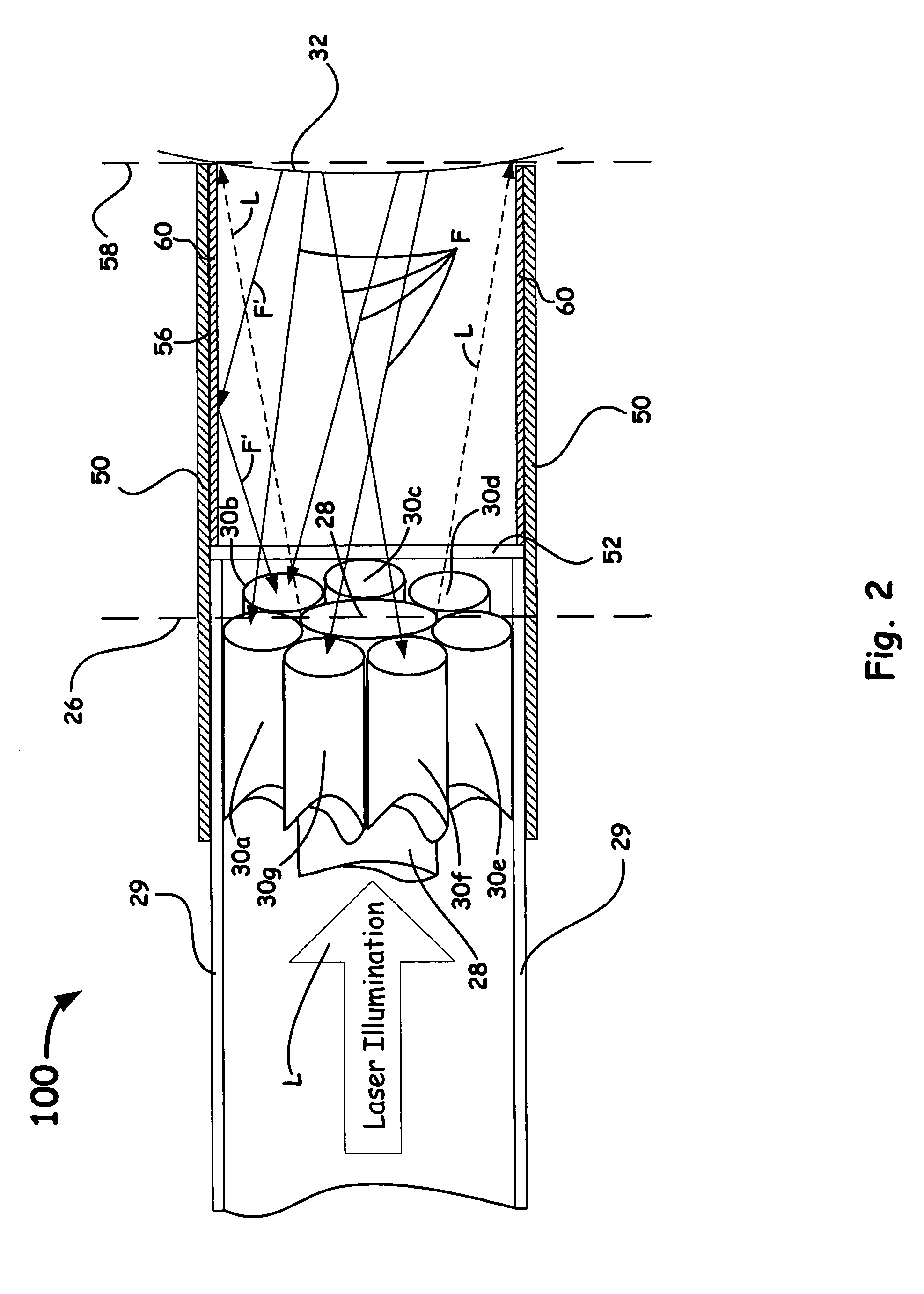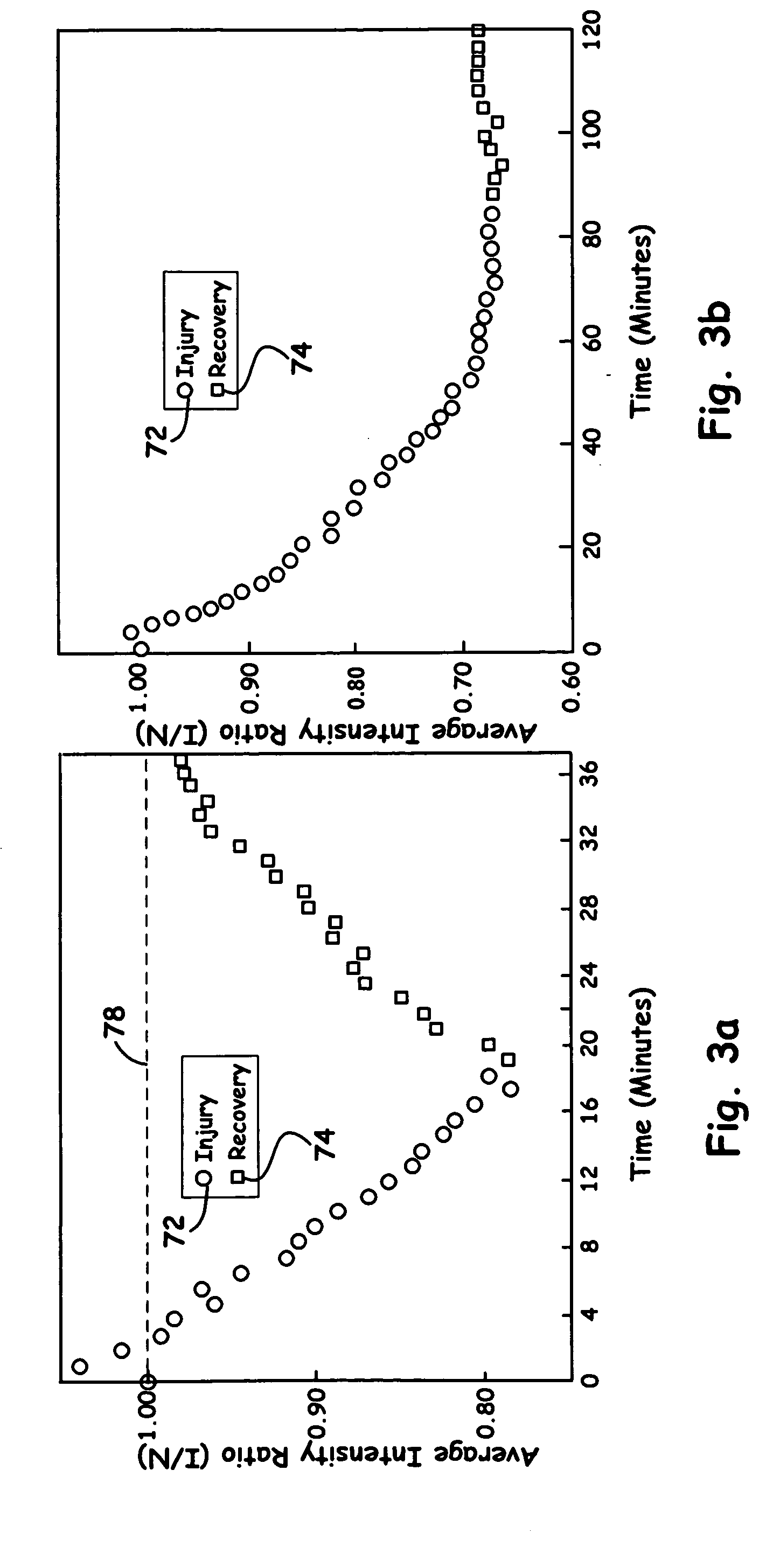Optical spectroscopy for the detection of ischemic tissue injury
a technology of ischemic tissue injury and optical spectroscopy, which is applied in the direction of diagnostics using spectroscopy, instruments, fluorescence/phosphorescence, etc., can solve the problems of variable amount of additional warm ischemia, difficult to quantify how much warm ischemic organ damage has occurred, and the organs of cadaveric donors are often difficult to transplan
- Summary
- Abstract
- Description
- Claims
- Application Information
AI Technical Summary
Problems solved by technology
Method used
Image
Examples
Embodiment Construction
[0021] Referring now to the drawings, specific embodiments of the invention are shown. The detailed description of the specific embodiments, together with the general description of the invention, serves to explain the principles of the invention.
General Description
[0022] The present invention provides apparatus and methods for real-time determination and quantification of the state of tissue components. In general, the apparatus as disclosed herein, can include an optical probe having at least one illumination optical fiber, a plurality of collection optical fibers, at least one radiation source so as to cause scattering and / or photoexcitation so as to induce autofluorescence in a targeted tissue component; a detector system that acquires such autofluorescence and scattered spectra of polarized and unpolarized light; and a processor primarily arranged for comparing received autofluorescence signals so as to assess in real-time tissue properties, the metabolic state, injury, and ...
PUM
 Login to View More
Login to View More Abstract
Description
Claims
Application Information
 Login to View More
Login to View More - R&D
- Intellectual Property
- Life Sciences
- Materials
- Tech Scout
- Unparalleled Data Quality
- Higher Quality Content
- 60% Fewer Hallucinations
Browse by: Latest US Patents, China's latest patents, Technical Efficacy Thesaurus, Application Domain, Technology Topic, Popular Technical Reports.
© 2025 PatSnap. All rights reserved.Legal|Privacy policy|Modern Slavery Act Transparency Statement|Sitemap|About US| Contact US: help@patsnap.com



